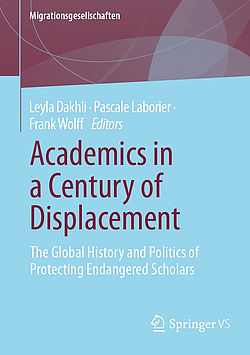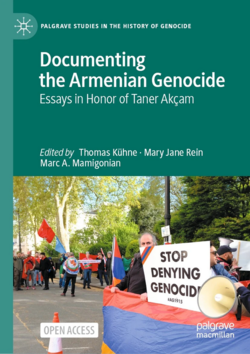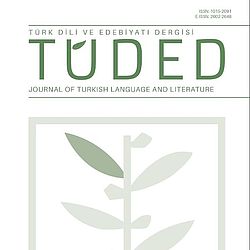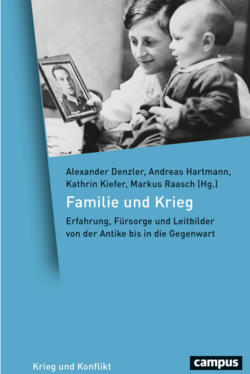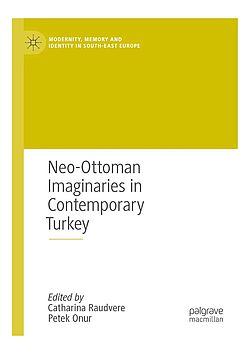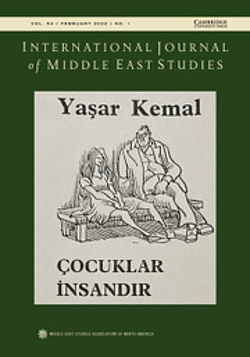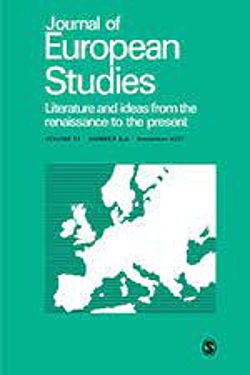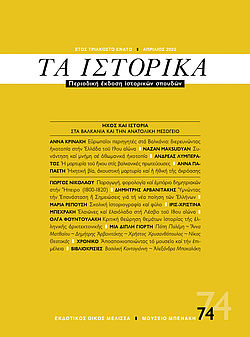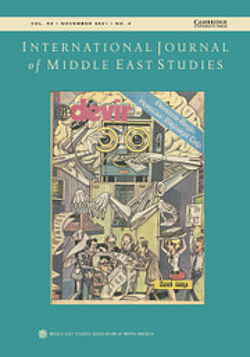Prof. Dr. Nazan Maksudyan | Researcher
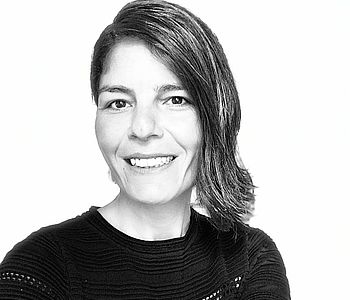
Home Institution
:
Centre Marc Bloch
|
Position
:
Researcher
|
Disciplines
:
History
|
Biography
Nazan Maksudyan is Senior Researcher and head of the Centre Marc Bloch research team in the UK Research and Innovation (UKRI) funded research project, “Ottoman Auralities and the Eastern Mediterranean: Sound, Media and Power, 1789-1914” (OTTOMAN AURALITIES; (replaced) ERC Starting Grant 2021; Principal Investigator: Dr. Peter McMurray, University of Cambridge). She is an Editorial Board Member of Journal of Women's History, Journal of European Studies, and First World War Studies.
From 2019 to 2022, Maksudyan was an Einstein guest professor in the Friedrich-Meinecke-Institut at the Freie Universität Berlin. She was a »Europe in the Middle East – The Middle East in Europe« (EUME) Fellow in 2009 and 2010 at the Wissenschaftskolleg zu Berlin and an Alexander von Humboldt Stiftung Postdoctoral Fellow at the Leibniz-Zentrum Moderner Orient (Berlin) in 2010 – 2011 and in 2016 and 2018. From 2013 to 2016, she worked as a professor of history in Istanbul and received her habilitation degree in 2015.
Her research mainly focuses on the social and cultural history of the late Ottoman Empire and modern Turkey (18th–20th centuries) , with special interest in children and youth, gender, sexuality, exile and migration, sound studies, and the history of sciences. Among her publications are Ottoman Children & Youth During World War I (Syracuse UP, 2019), Orphans and Destitute Children in the Late Ottoman Empire (Syracuse UP, 2014), Women and the City, Women in the City (ed., Berghahn, 2014), Urban Neighborhood Formations (ed. with Hilal Alkan, Routledge, 2020).
Soundscapes of Late Ottoman Cities
Rebellious Misfits: Self-Representations of Armenian Children who Survived the Genocide
September 01, 2025Nazan Maksudyan
Joseph C. Miller Memorial Lecture Series, Volume 29
Edition: EB Verlag
Collection: Joseph C. Miller Memorial Lecture Series, Volume 29
ISBN: 978-3-86893-507-3
Beyond Borders and Binaries: Young Ottoman Women’s Experiments with Gender, Body, and Sexuality in Germany During World War I.
April 01, 2025Nazan Maksudyan
https://www.tandfonline.com/doi/full/10.1080/19475020.2025.2488284
In contrast to their male counterparts in apprenticeships, secondary education and technical training, there is a gap in scholarship on the education of (Muslim, unmarried) Ottoman women in Germany during the First World War as part of an educational collaboration between two empires. This article presents a wealth of new insights into the lives of this group of young women, based on research into official documentation from the Ottoman Prime Ministry Archives, the Political Archive of the Foreign Office, the Federal Archives in Berlin and the Secret State Archives, supplemented by personal documents and biographical sources. In particular, I focus on the Heidelberg diary of Şaziye Hayri (1899–1994), held from 20 February 1918 to 26 January 1919. The diary offers insights into the experiences of young women in German cities and educational institutions during wartime, thereby enriching our understanding of the interplay of gender dynamics in such exceptional conditions. Furthermore, the diary provides valuable insights into women’s experiences and explorations into gender, body, and sexuality. I argue that these women arrived in Germany with high hopes of achieving emancipation, independence, self-sufficiency, and individualisation. Their emancipated lifestyles during and after the war led them to seek a similar space of freedom in their later lives and helped them develop a more grounded sense of agency and self-respect. Nevertheless, in the context of the rise of fascism across Europe in the 1930s, the anti-intellectual, anti-liberal, and anti-feminist attitudes of these regimes marginalised the contributions and experiences of these women in historical scholarship.
"Crime and Non-punishment: Legacies of Genocide and Denial in Turkey"
March 29, 2025Nazan Maksudyan
N. Maksudyan, (2025). "Crime and Non-punishment: Legacies of Genocide and Denial in Turkey". In: Dinç, P., Hünler, O.S. (eds) The Republic of Turkey and its Unresolved Issues. Palgrave Macmillan, Singapore. https://doi.org/10.1007/978-981-96-1583-4_3
"Rural Child Welfare, Gendered Community Work, and Intersectionality: Erna Eckstein-Schlossmann’s Migration from Nazi Germany to Turkey"
March 23, 2025Nazan Maksudyan
Maksudyan, N. (2025). "Rural Child Welfare, Gendered Community Work, and Intersectionality: Erna Eckstein-Schlossmann’s Migration from Nazi Germany to Turkey". In: Women, Migration and the Exchange of Knowledge from the Sixteenth to the Twenty-first Century. (Palgrave Macmillan)
"Decolonization of Migration in Divided Berlin: Berliner Künstlerprogramm and Artistic Representations of Migrant Subjectivities in the 1970s"
January 07, 2025Nazan Maksudyan
Nazan Maksudyan, "Decolonization of Migration in Divided Berlin: Berliner Künstlerprogramm and Artistic Representations of Migrant Subjectivities in the 1970s", in: TRAFO – Blog for Transregional Research, 07.01.2025, https://trafo.hypotheses.org/54104
Nazan Maksudyan & Hilal Alkan (2024): Exile and fieldwork as liminal conditions: Leonore Kosswig’s life and research in Turkey, 1937–1973
October 01, 2024Nazan Maksudyan , Hilal Alkan
Edition: Women's History Review
https://doi.org/10.1080/09612025.2024.2406599
This paper looks into the life and ethnographic work of Leonore Kosswig (1904–1973), who lived in Turkey as a German exile from 1937 until her death in 1973. While her husband, Curt Kosswig was invited to Istanbul University as a full professor, Leonore had no institutional affiliation. However, she traveled with her husband around Anatolia and joined his fieldwork, during which she developed an interest in local customs and the daily life of villagers and nomadic tribes. Leonore decided to stay in Turkey after Curt’s return to Germany in 1955. Her excellent command of Turkish and former experience in fieldwork allowed her to become one of the first women to conduct ethnographic research in Turkey. Until her death, she pursued several pioneering research projects on wedding customs, tablet weaving, nomadic life, and ownership signs. Relying on her research publications and ego-documents, we employ a biographical approach to articulate upon her liminal existence in exile. In dialogue with research on twentieth century forced migrations that engage with the concepts of in-betweenness and liminality, we address Leonore’s liminal existences on the edge of two worlds on numerous planes. In particular, we argue that Kosswig’s liminality was reflected on her exilic existence in Istanbul as a foreign woman; her ethnographic research agenda into liminal geographic locations, marginalized communities, and disappearing cultural artifacts; and her gendered navigation of foreignness and nativeness.
The genocidal disruption of Johannes Jacob Manissadjian’s (1862–1942) lifework: a biographical approach to mass violence and indigenous knowledge production
July 30, 2024Nazan Maksudyan
Edition: Contemporary Levant
Relying on a biographical approach that reconstructs the life and work of Johannes [Hovhanness/Յովհաննէս] Jakob [Hagop/Յակոբ] Manissadjian [Manisacıyan/Մանիսաճեան] (1862–1942), a highly successful scientist at the Anatolia College (Merzifon/Marsovan/Մարզվան), who established a meteorological station and a natural history museum with an extensive collection of specimens, the paper traces the routes of disappearance, dispersal and ruination of indigenous lives, people, and knowledge within the context of the Armenian genocide. Drawing on documents from Ottoman, German, and American archives, I stress the potential of biographical methods to study the processes and structures of mass violence targeting the Ottoman Armenians, as well as to foreground the agency and subjectivity of genocide survivors. The article also focuses on post-genocide scientific (dis)engagements of Manissadjian in light of Theodor W. Adorno’s ‘after Auschwitz’ discussions and from the perspective of indigenous knowledge production. In particular, his two ‘archival acts’ in the post-genocide context, the ‘Catalogue’ of the collection of the Anatolia College Museum that he prepared as ‘the former Curator’ and his small pamphlet entitled Proverbs of Turkey, which provided an ethnographic portrait of Anatolia, were his humble acts of saving a treasure trove of knowledge that was in danger of becoming debris.
“Encounter and Memory in Ottoman Soundscapes: An Audiovisual Album of Street Vendors’ Cries”
July 01, 2024Nazan Maksudyan
Nazan Maksudyan (2024), “Encounter and Memory in Ottoman Soundscapes: An Audiovisual Album of Street Vendors’ Cries”, in Acoustics of Empire: Sound, Media, and Power in the Long Nineteenth Century, Peter McMurray, Priyasha Mukhopadhyay, eds. (Oxford University Press, 2024), 55-85. https://academic.oup.com/book/57636/chapter/469344109
Abstract This paper follows the plight of Walter Ruben (1899– 1982), an Indologist who had begun his career in Frankfurt am Main and later became one of the leading Indologists of the German Democratic Republic. In mid-1930s, he escaped Nazi persecution by seeking exile in Turkey. Relying on archival research in the Berlin-Brandenburg Academy of Sciences and Humanities (BBAW) and the Prime Ministry’s Republican Archives (BCA) in Istanbul, the Turkish press, and oral historical sources, together with the publications of Ruben during his Ankara years, I bring to light Ruben’s life trajectory during his exile and internment with a balanced analysis of his ‘production of knowledge’ as a scholar at risk. The scholarly pressure and difficulties Ruben faced as an endangered scholar hired by a single-party authoritarian state delineate the precariousness and vulnerabilities of life as an exile academic. His original research and writing during his forced internment in Kırşehir, on the other hand, marks another dimension of his exile years, namely his endless effort to look for a real refuge within his intellectual production.
Pages 101-128 of "Academics in a Century of Displacement" which contains sections of a lot of other CMB Assoiates such as Leyla Dakhli, Pascale Laborier, Frank Wolff, Isabella Löhr
Afterlives of Ottoman Orphans in Germany during World War I: Microhistorical and Biographical Approaches to Technology, Expertise, and Labor in Turkey
May 01, 2024Nazan Maksudyan
https://muse.jhu.edu/article/927858
ABSTRACT
This article applies a (micro)biographical approach to the life stories of two Ottoman orphans sent to Germany to receive vocational training during World War I, Ali and İsmail Dağlı. Coupling family archives, oral and visual sources with state documentation, I elaborate on the post-Ottoman afterlives of German know-how, education, and capital in the social and economic history of Turkey. Biographies of Dağlı brothers show that the successors of both empires restored former channels of circulation of expertise, technology, and labor. Especially seen in the context of Jewish emigration, the life and work history of the brothers elucidate the positive reception of their German education, the importance of their position as “cultural intermediaries,” and the extent of Turkish-German business entanglements.
‘Sound-Writing’ Technologies and Early Field Recordings in the Ottoman Empire
April 04, 2024Nazan Maksudyan
https://dergipark.org.tr/en/pub/srtc/issue/84330/1449023
Abstract
The history of early sound recording technologies in the Ottoman Empire has been studied mainly from the perspectives of music production, comparative musicology, and ethnomusicology. In fact, while hundreds of commercial and musical cylinders were being produced in Istanbul, Beirut, and elsewhere, European anthropologists, ethnologists, linguists, orientalists, etc. were traveling throughout the Balkans, Anatolia, and the Caucasus collecting audio data for scientific purposes. In order to contribute to the Ottoman history of science and technology from the perspectives of sound studies and auditory history, I focus on the first field recordings in the Ottoman Empire, namely during Paul Kretschmer's (1866-1956) study trip to Lesbos in 1901 and Felix von Luschan's (1854-1924) research in Zincirli (Sendschirli, Aintab) in 1902. Thus, this paper aims to fill a research gap within Ottoman Studies with regard to non-musical recordings and the impact of sound reproduction technologies on the history of the (colonial) sciences, especially anthropology, ethnology and linguistics.
Encounter and Memory in Ottoman Soundscapes: An Audiovisual Album of Street Vendors’ Cries
April 01, 2024Nazan Maksudyan
https://shs.hal.science/halshs-03895462
This paper focuses on the sonic presence of street vendors’ in nineteenth century Ottoman soundscapes through a unique and extraordinary audiovisual media object: an album of photos and musical transcriptions of street vendors’ cries in Western staff notation. My research is conceived as a sonic history tracing several encounters of vendors with passersby on the streets, as I emphasize that sound should be analyzed as a relationship between a listener and something listened to. The paper analyzes different listening habits and subjectivities along the lines of religion, class, language, ethnicity, gender and other categories of difference. I stress the way cultural difference, especially intra-imperial difference, emerges in an urban soundscape like Istanbul. I use the term, then, in the plural, as “soundscapes”, taking into account multiple sensory experiences of a diversity of peoples. Relying on Ottoman archival material, literature in different Ottoman languages, ego-documents, travelogues, scientific writings, newspapers, letters, diaries, legal documents, musical notes, court records, I analyze four encounters and relations that itinerant sellers’ cries delineate: migration (how rural migrants listened to Ottoman urbanites, and vice versa); multilingualism and diversity; human-nonhuman encounters; and the audibility of gender. Lastly, I touch upon the romantic fascination with the practice of itinerant merchants, due to their imagined “oriental” character, originality, and anticipated extinction.
Mediatized Witnessing, Spectacles of Pain, and Reenacting Suffering: The Armenian Genocide and Humanitarian Cinema
December 29, 2023Nazan Maksudyan
https://link.springer.com/chapter/10.1007/978-3-031-36753-3_5
Abstract
Focusing on the conception, production, distribution (and disappearance) of Ravished Armenia (1919) and Alice in Hungerland (1921), two silent films on the Armenian Genocide from a gendered perspective, this chapter combines media history (“technologies of witnessing”) with the history of global humanitarianism. These two oldest movies on the genocide were shot with the initiative of the Near East Relief in order to raise donations and international awareness through the reenactment of suffering, sensationalization of violence, and victimized Armenian bodies. Both films enjoyed a short-lived fame and revenue, followed by disappearance and subsequent oblivion. The early humanitarian cinematic representation of the Armenian genocide sheds light on the ferocious mediatization and marketing strategies of humanitarian agencies, specifically as to how they targeted the corporal bodies of their lead orphan actresses, Arshalouys Mardigian and Esther Razon, through extensive bodily interventions, enormous workload, and reenactment of suffering.
Children at the Margins of Labour Migration in Füruzan’s Works after Germany
December 27, 2023Nazan Maksudyan
In 1975, novelist and short story writer Füruzan came to West Berlin following the invitation of the German Academic Exchange Service and spent the next five years on and off in Berlin until 1980. Following her travels, she published her journalistic essays/memoirs Yeni Konuklar (1977) and Ev sahipleri (1981), her children’s book Vom rotgesprenkelten Spatzen (1980), and her novel Berlin’in Nar Çiçeği (1988). While she gained a transregional perspective on issues concerning labour migration and class during her time in Germany, her works resulting from it introduced these subjects to her readership in Turkey. Her Yeni Konuklar and Ev sahipleri in particular provide a significant amount of data on the subject of labour migration to Germany, while her Vom rotgesprenkelten Spatzen and Berlin’in Nar Çiçeği elaborate upon the inherent large cultural shifts on both sides resulting from labour migration. This article examines the works Füruzan produced following her stay in Germany in the 1970s. It discusses the ways in which she presents the perspectives of the children as previously underexplored material on issues concerning global labour mobility. It looks at how children’s experiences reveal a more complicated reality in regards to social and cultural integration with an emphasis on the difficulties that they face and go unnoticed. Moreover, it also argues for the distinct potentialities of integration rendered possible through the relationship between the immigrant children and the elderly Germans due to a shared experience of marginalisation.
in Familie und Krieg: Erfahrung, Fürsorge und Leitbilder von der Antike bis in die Gegenwart, Alexander Denzler, Andreas Hartmann, Kathrin Kiefer, Markus Raasch (Hg.) (Farkfurt: Campus Verlag, 2023), 111-139.
The fall of a city: Refugees, exodus and exile in Ernest Hemingway’s Istanbul, 1922
August 07, 2023Nazan Maksudyan
Edition: Journal of European Studies
Ernest Hemingway arrived in Istanbul on 30 September 1922 to cover the end of the Greek–Turkish War for the Toronto Star. From late October to mid-November 1922, Hemingway wrote 20 articles about the last days of the war and the re-constellation of political legitimacy in the region. There are four distinguishing features of Hemingway’s reports from Constantinople. First, they provided an eloquent depiction of the city, suggesting the charm and squalor of old ‘Constan’ for the young writer. The second was a clear expectation of a ‘second disaster’, which was assumed to be a replica of Smyrna. Hemingway clearly observed the fears of non-Muslims and foreigners in the city, who were panicking over possible new massacres and pillage. Third, Hemingway quickly realized that the exodus of people – the desperate flight of Christian refugees – and Turkification of the country would be his main subject. His repeated emphasis on refugees permanent loss of a home is reminiscent of Hannah Arendt’s famous essay ‘We Refugees’, as well as a precursor to Agamben’s point that refugees are reduced to ‘bare life’. Lastly, his prose relied on irony and cynicism, as a cover for his disappointment and shame for humanity and modern civilization. Juxtaposing his writing with contemporary local accounts, I intend to situate his witnessing into the larger historiography of ‘Armistice Istanbul’ and the homogenization policies of the winning Turkish nationalist leadership. Hemingway’s critique of (homogeneous) nation-state formation after the war and the favourable involvement of the Allied countries and humanitarian agencies in the mass production of refugees was quite exceptional and ahead of his times.
Erna Eckstein-Schlossmann’s exile years in Turkey, 1935–1950: a biographical and gendered approach to migration history
May 23, 2023Nazan Maksudyan
Edition: Women's History Review
Erna Eckstein-Schlossmann (1895–1998) and Albert Eckstein (1891–1950), a pediatrician couple from Düsseldorf, had to hand in their official resignations after being declared as ‘Jews’ according to the laws of 1933 and 1935. Albert Eckstein accepted the offer of the Turkish government to become the head of the pediatric clinic of Ankara Hospital. Relying on a biographical approach and utilizing ego-documents, such as memoirs, letters, and travelogues at the Eckstein family archives, together with Turkish state archives, and Erna Eckstein-Schlossmann’s research publications, this paper conceptualizes Erna’s exile years in Turkey along gendered lines and provides an intersectional interpretation of migration. This microhistorical reconstruction acknowledges her agency and subjectivity as a high-skilled migrant woman; intertwines her life story with the larger dynamics of the migrant networks in Turkey; and brings it into dialogue with macro-level structural factors with regards to the war, the mass murder and the global movement of European Jews.
For the Holy War and Motherland: Ottoman State Orphanages (Darüleytams) in the Context of the First World War and the Armenian Genocide
March 28, 2023Nazan Maksudyan
Special Issue "Kinder in Heimen", ed. by Anelia Kassabova, Sandra Maß (Hg.)
Edition: L’Homme. Europäische Zeitschrift für Feministische Geschichtswissenschaft 34/1 (2023): 39-59
Collection: Special Issue "Kinder in Heimen", ed. by Anelia Kassabova, Sandra Maß (Hg.)
The Oxford Handbook of the History of Youth Culture The Oxford Handbook of the History of Youth Culture
Collection: The Oxford Handbook of the History of Youth Culture The Oxford Handbook of the History of Youth Culture
Youth cultures’ engagement with activism and politics, through which young people attempt “to initiate and resist change in the social order,” has produced a sizable literature. A discussion of this topic traces this engagement and its changes over time. First, nationalist youth cultures of the early twentieth century stressed duty, responsibility, and idealism. Later, the anti-establishment youth cultures of the 1960s and 1970s aspired to change the world on a global scale. Anarchistic and nonconformist youth subcultures of the 1980s and 1990s cultivated apathy toward traditional politics. Finally, globally dissenting millennials focus their concerns on democratic governance, ecology, and global social justice.
Maksudyan, Nazan, 'Youth Cultures of Activism and Politics', in James Marten (ed.), The Oxford Handbook of the History of Youth Culture (online edn, Oxford Academic, 14 Apr. 2021), https://doi.org/10.1093/oxfordhb/9780190920753.013.27,
Commemorating the First World War and Its Aftermath: Neo-Ottomanism, Gender, and the Politics of History in Turkey
December 14, 2022Nazan Maksudyan , Hilal Alkan
Modernity, Memory and Identity in South-East Europe
Edition: Neo-Ottoman Imaginaries in Contemporary Turkey
Collection: Modernity, Memory and Identity in South-East Europe
This chapter discusses the Justice and Development Party’s (AKP) neo-Ottomanist history politics with a focus on commemoration and memorialisation of the First World War and the “Independence War” in Turkey. These commemorations refer to a mythical Ottoman past that stresses Sunni-Muslim-Turkish imperial legacy and the prominence of Muslim faith, solidarity, and martyrdom. While they undermine the hero cult around Mustafa Kemal and pluralize heroism by including women (and other male warriors), the commemorations consciously omit the existence of non-Muslim soldiers and ethnic violence against non-Muslims. The chapter traces incorporation of mythical narratives of women warriors into the centennial memorialisation in order to explore the shift in the construction of masculinities and femininities. Although the recognition of women’s participation in the war effort is a step towards pluralisation, women’s heroic representations reflect the same neo-Ottomanist obsession with “Muslim martyrdom” that rests on a masculinist notion of heroism, and a homogeneous ethno-religious identity.
Maksudyan, N., Alkan, H. (2023). Commemorating the First World War and Its Aftermath: Neo-Ottomanism, Gender, and the Politics of History in Turkey. In: Raudvere, C., Onur, P. (eds) Neo-Ottoman Imaginaries in Contemporary Turkey. Modernity, Memory and Identity in South-East Europe. Palgrave Macmillan, Cham. https://doi.org/10.1007/978-3-031-08023-4_7
Racial Anthropology in Turkey and Transnational Entanglements in the Making of Scientific Knowledge: Seniha Tunakan’s Academic Trajectory, 1930s–1970s
June 15, 2022Nazan Maksudyan
International Journal of Middle East Studies 54 (1)
Edition: Cambridge University Press
Collection: International Journal of Middle East Studies 54 (1)
This article situates the trajectory of the academic life of Seniha Tunakan (1908–2000) within the development of anthropology as a scientific discipline in Turkey and its transnational connections to Europe during the interwar period and up until the second half of the 20th century. Relying on the archives of the Max-Planck-Gesellschaft, the archive of the Humboldt-Universität zu Berlin, the Politisches Archiv des Auswärtigen Amtes in Germany, and the Prime Ministry's Republican Archives in Turkey, it focuses on the doctoral studies of Seniha Tunakan in Germany and her life as a female PhD researcher in the capital of the Third Reich, as well as her entire research career after her return to Turkey. Through Tunakan's career, the article also provides an analysis of the perpetuation of German race science in the Turkish context, shedding light upon the success of the Kaiser-Wilhelm-Institut für Anthropologie, menschliche Erblehre und Eugenik (Kaiser Wilhelm Institute for Anthropology, Human Heredity, and Eugenics) and its transnational impact.
Embracing Embodiedness, Desire and Failure: Women’s Fluid Gender Performances in Sevgi Soysal’s Oeuvre from the 1960s.
May 09, 2022Nazan Maksudyan , Burcu Alkan
Journal of European Studies
Collection: Journal of European Studies
The ‘women’s liberation’ of the global 1960s did not entail a full range of women’s rights, feminist politics and sexual freedoms in Turkey. On the contrary, the Turkish 1960s were characterised by a patriarchal heteronormative order that imprisoned women in a passive and essentially asexual identity and denied them control over their bodies. In Turkey, women’s emancipation was postponed. At the same time, the 1960s offered a juncture of literary renewal in women’s writing and representation, embracing the dictum ‘the personal is political’. This article focuses on three works by Sevgi Soysal (1936–1976), a key name of this period whose writing is concerned with the problematisation of what Judith Butler calls ‘the compulsory order of sex/gender/desire’. Relying on queer theory, we examine how Soysal’s Tutkulu Perçem (The Passionate Forelock, 1962), Tante Rosa (Aunt Rosa, 1968) and Yürümek (Walking, 1970) represent female characters’ growing awareness of their rich spectrum of gender performances, as they embrace their desires, transformations and confusions. In this way, Soysal’s works not only take the female body ‘out of the closet’ but also explore its multitude of desires and fluid possibilities.
Maksudyan, Nazan, and Burcu Alkan. “Embracing Embodiedness, Desire and Failure: Women’s Fluid Gender Performances in Sevgi Soysal’s Oeuvre from the 1960s.” Journal of European Studies, (May 2022). https://doi.org/10.1177/00472441221090705.
Encounter and Memory in Ottoman Soundscapes: An Audiovisual Album of Street Vendors’ Cries
April 01, 2022Nazan Maksudyan
Nazan Maksudyan, "Συνάντηση και μνήμη σε οθωμανικά ηχοτοπία: ένα οπτικοακουστικό άμλπουμ των φωνών των πλανόδιων πωλητών", μτφρ. Κατερίνα Στάθη, Τα Ιστορικά, τχ. 74, Απρ. 2022, σ. 32-60.
Nazan Maksudyan, “Encounter and Memory in Ottoman Soundscapes: An Audiovisual Album of Street Vendors’ Cries”, trans. by Katerina Stathi, Historica 74 (April 2022), 32-60 [in Greek].
Revolution is the Equality of Children and Adults”: Yaşar Kemal Interviews Street Children, 1975
December 17, 2021Nazan Maksudyan
International Journal of Middle East Studies
Edition: Cambridge University Press
Collection: International Journal of Middle East Studies
In 1975, the world-famous novelist Yaşar Kemal (1923–2015) undertook a series of journalistic interviews with street children in Istanbul. The series, entitled “Children Are Human” (Çocuklar İnsandır), reflects the author's rebellious attitude as well as the revolutionary spirit of hope in the 1970s in Turkey. Kemal's ethnographic fieldwork with street children criticized the demotion of children to a less-than-human status when present among adults. He approached children's rights from a human rights angle, stressing the humanity of children and that children's rights are human rights. The methodological contribution of this research to the history of children and youth is its engagement with ethnography as historical source. His research provided children the opportunity to express their political subjectivities and their understanding of the major political questions of the time, specifically those of social justice, (in)equality, poverty, and ethnic violence encountered in their everyday interactions with politics in the country. Yaşar Kemal's fieldwork notes and transcribed interviews also bring to light immense injustices within an intersectional framework of age, class, ethnicity, and gender. The author emphasizes that children's political agency and their political protest is deeply rooted in their subordination and misery, but also in their dreams and hopes. Situating Yaşar Kemal's “Children Are Human” in the context of the 1970s in Turkey, I hope to contribute to childhood studies with regard to the political agency of children as well as to the history of public intellectuals and newspapers in Turkey and to progressive representations of urban marginalization.


